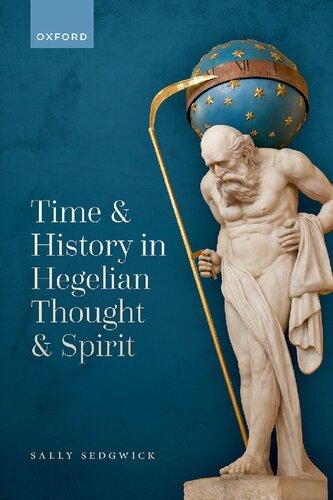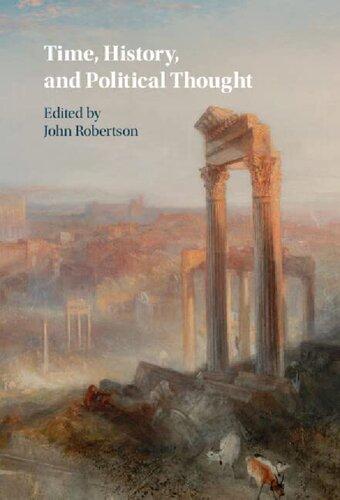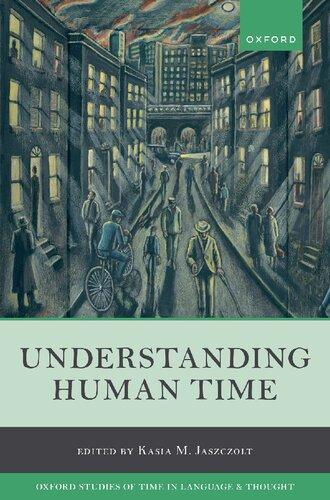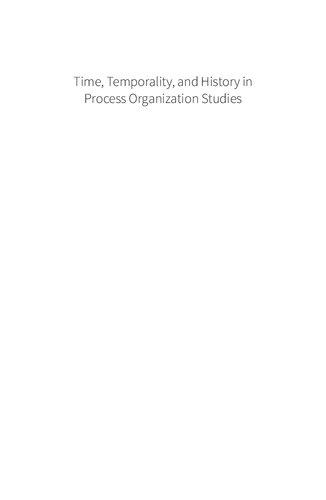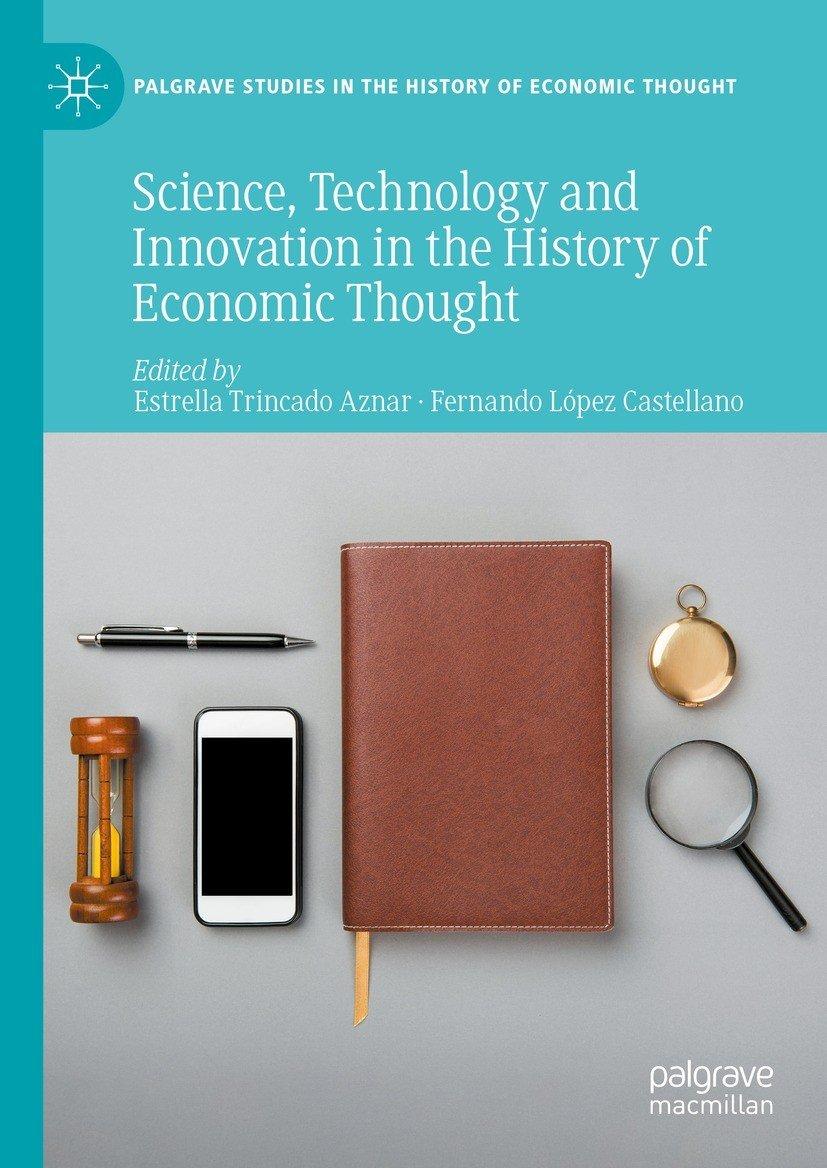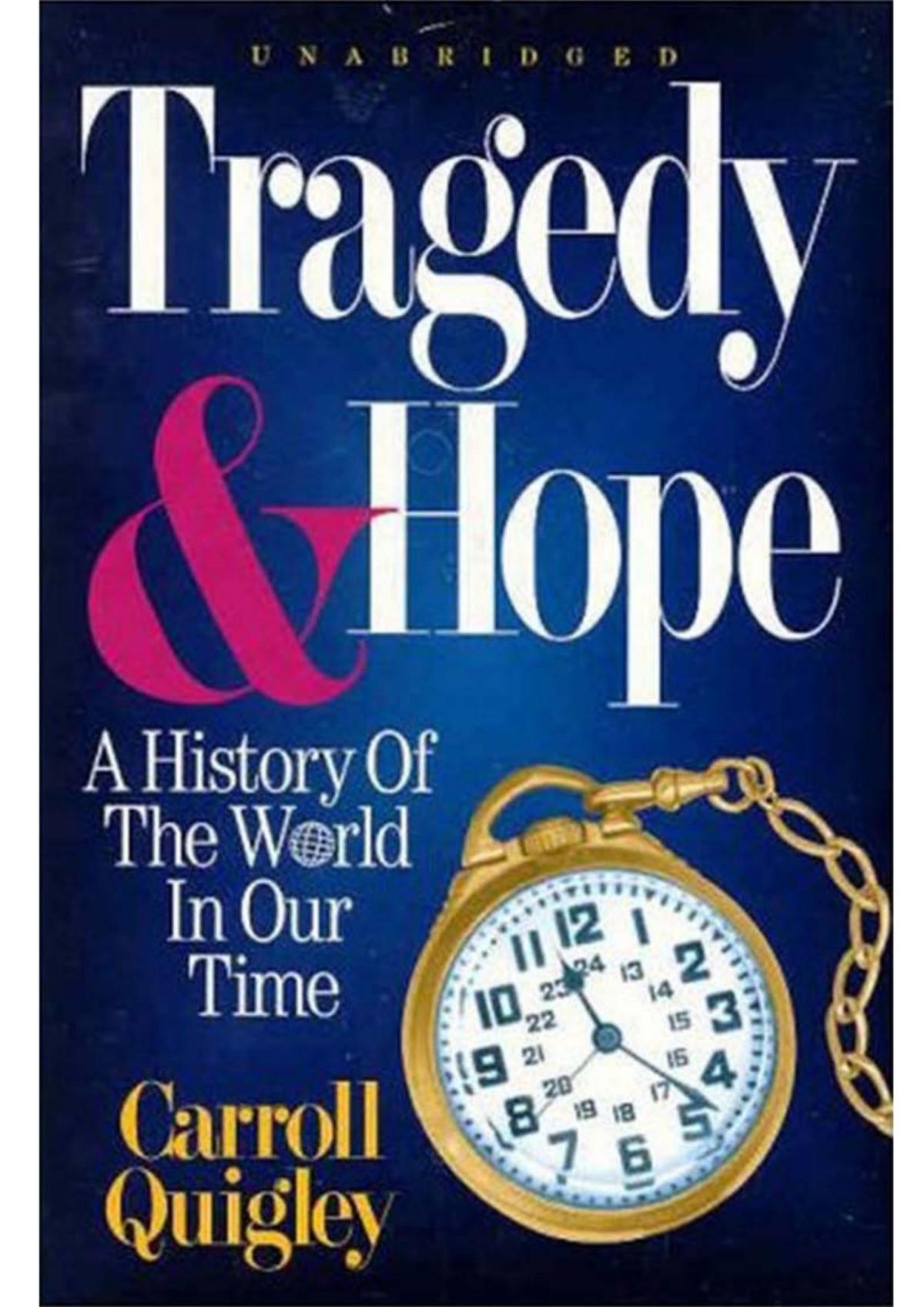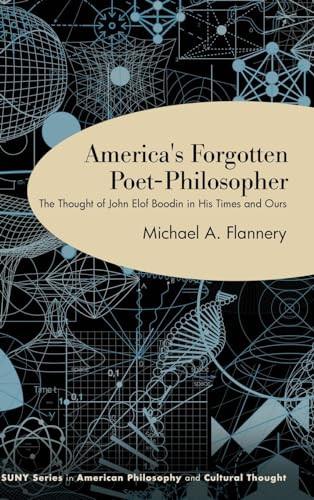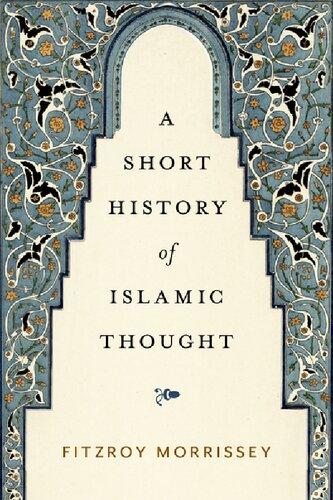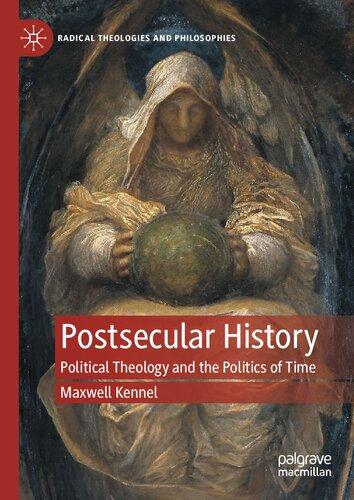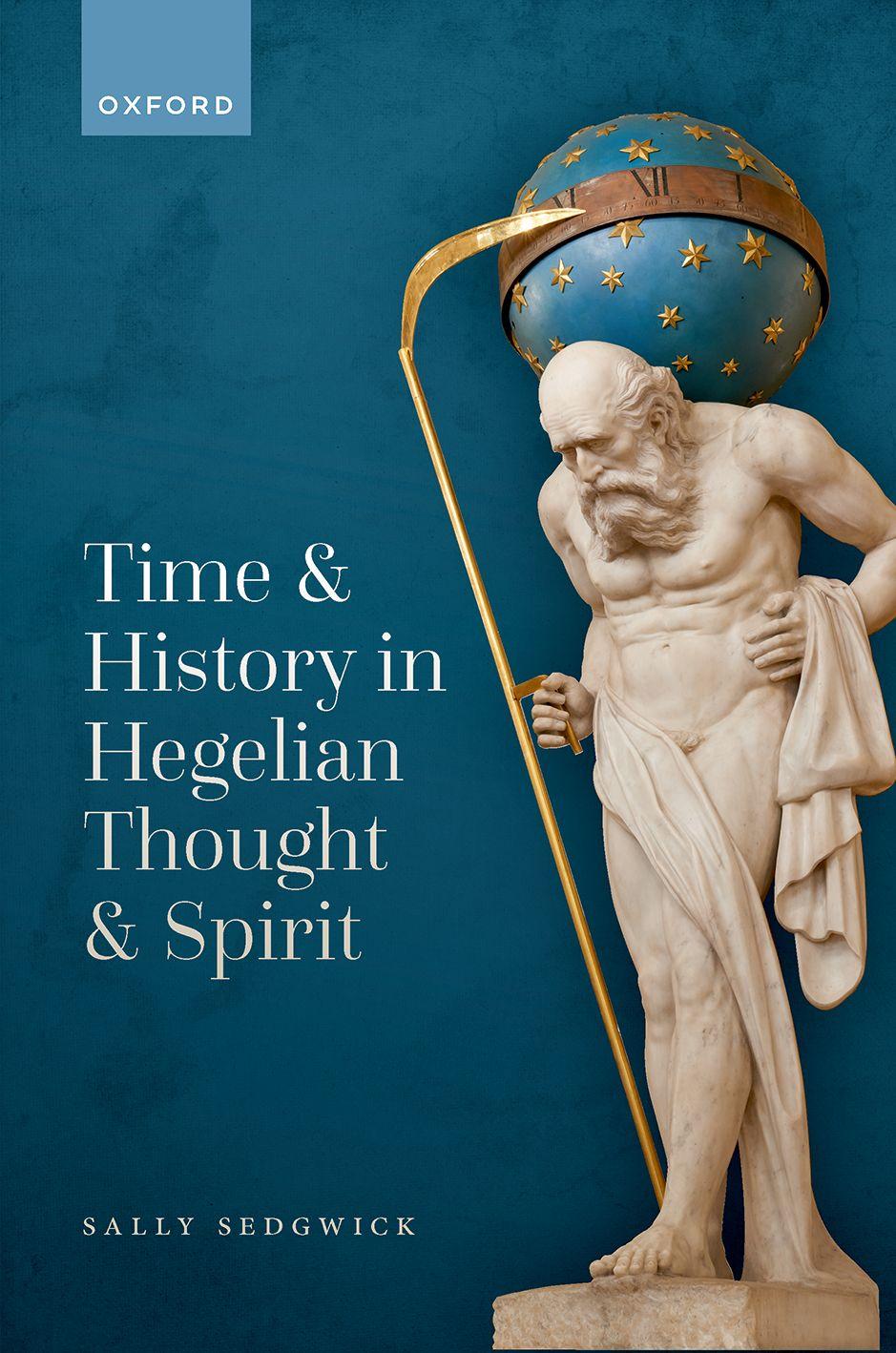Introduction
“Nothing in the past is lost [to philosophy] . . .”
(G. W. F. Hegel, Lectures on the Philosophy of History
)
A conspicuous feature of Hegel’s major works is that they are developmental narratives. His narratives are moreover progressive: they invariably advance from less to more perfect, abstract to concrete, indeterminate or empty to determinate. In some of Hegel’s writings (for example, his lectures on aesthetics and on the history of philosophy), the developments quite obviously track stages of ‘real’ chronological progress, from one historical epoch to the next; they tie moments in the history of ideas to actual figures and events. There is development even when Hegel’s discussions seem barely connected to world history. Although his most abstract work, the Science of Logic, contains very few references to historical figures and hardly resembles what we would typically consider a history of logic, Hegel nonetheless describes its principal object, the “Concept [Begriff ]”, as unfolding in stages. The story has a beginning, middle, and end; it is unified by a certain plot. The Concept itself and our knowledge of it is presented as a series of transitions from abstract and empty to increasingly concrete or determinate.
Hegel discovers development everywhere: in organisms, in our concepts, philosophical systems and assumptions, and in our freedom. It is safe to say that development in the form of transitions from lower to higher stages or moments is a key feature of his entire system. There appears to be a connection, too, between his interest in development and his commitment to the “dialectical” nature of “everything”, for dialectic seems to be what moves the various progressions along.1
Why is it so important for Hegel to structure his various philosophical works as developmental narratives? Is this simply a stylistic preference? Has he convinced himself that he is more likely to capture his readers’ attention if his discussions are written after the fashion of coming-of-age stories, or Bildungsromane? Is
1 “Everything around us can be considered an instance of the dialectical [Alles, was uns umgibt, kann als Beispiel des Dialektischen betrachtet werden]” (EL §81A1). Here, and frequently in this work, I quote from an “Addition [Zusatz]”, in this case Addition 1. The Additions to Hegel’s texts are compilations of student notes taken during his lectures; they should not be assumed to represent his words verbatim.
this how he hopes to ensure that even his dauntingly abstract Science of Logic will be a lively read?
It might be thought that, especially in the case of Hegel’s most obviously historical works, the answer to these questions is relatively banal: he structures his discussions developmentally because he is a philosopher who takes a serious interest in history. He immerses himself in studies of the past, discovers differences in the thinking of his predecessors and contemporaries, and sets out to catalogue the vast variety in the history of ideas. This explanation becomes even more plausible if we add to it an acknowledgement of Hegel’s faith in progress. It then seems that we can account for his preoccupation with the past by noting his confidence that the present is an improvement. Whether the focus of his attention is religion, logic, or living organisms, his story is not one of mere change but of growth. He looks back and records development in order to reassure us that, despite the abundant conflict and suffering in our midst, the arc of history is bending towards justice. He aims to establish that there has been progress in our thinking, in our self-consciousness and freedom.
No doubt, Hegel was both keenly interested in history and convinced that it contains evidence of progress; but there is nonetheless more to say about why he crafted his major works as developmental stories. Although he defends the thesis that his own age is in significant respects an improvement over the past, his purpose in structuring his philosophical works as progressive narratives is presumably not just to please or comfort us. His motivation is as much metaphysical as it is practical. That is, Hegel intends his developmental accounts to reveal something significant about who we are as thinking, willing natures. He wishes to demonstrate that, in a certain respect, our reason and freedom themselves have ‘lower’ and ‘higher’ forms. Expressed differently, he undertakes his study of past or ‘lower’ forms in order to establish how there have been advances in the nature of human thought or reason itself and in our resulting freedom.
It is this metaphysical lesson that I am principally concerned to explore in the present work. If we assume, as I think we should, that Hegel is committed to the assumption that there is development in human reason itself, then questions such as the following arise: Is it his view that everything about human reason develops, including the features that distinguish it as a capacity from our other capacities? Or, does he rather hold that what develops is merely our idea of reason, or perhaps reason’s laws and concepts? And how does the development come about? Development cannot for Hegel be the product of mere chance, if by this we mean that there are no necessary connections among thoughts or events. If there are only accidental connections, then there is nothing by means of which we can discover a pattern or unifying idea; and without a pattern or unity, there can be nothing identifiable as development. There has to be a pattern, but how and out of what does the pattern emerge?
Hegel sometimes conveys the impression that he is convinced not just that there is a pattern but that the pattern is set in advance. It is as if he takes the progressive unfolding of our thought and freedom to be predetermined, perhaps planned—or at least as if planned—by a sub specie aeternitatis or divine intelligence. After all, he frequently describes his developmental tales as unfolding with “necessity”.2 He refers to his philosophy of history as a “theodicy [Theodizee]”—a “justification of the ways of God”—and portrays world history as the “march of God in the world” (PH 16–18/26–33, 39/53; PR §258A). He compares the journey of Spirit to the growth of a plant whose properties are originally contained in a simple seed (PH 82/75; EL §161A). Spirit’s “first traces [ersten Spuren]”, he says, “virtually contain all history” (PH 21/31).
There is a long tradition of interpreting Hegel in this way, that is, as committed to the thesis that the course of reason’s development is to a significant extent fixed in advance. Whether cast in theological or in secular terms, the basic idea is that the basic forms or concepts of Hegel’s Logic and philosophy of Spirit have a predetermined content, a content set by nature or pure reason or perhaps by a transcendent and all-powerful cause (a “puppet-master”, as Stephen Houlgate aptly terms it).3 On this reading, Hegel awards history no role in generating our most basic laws and concepts of reason or freedom. History is the theater in which the predetermined forms unfold. In some instances, history supplies the impetus for their activation or expression.
This general line of interpretation motivates for example Karl Marx’s charge, in The German Ideology, that the Hegelian deploys presumably ready-made ideas in its consideration of nature and human activity, and in this manner “descends from heaven to earth”.4 It underlies John Dewey’s remark, in The Quest for Certainty, that Hegel locates the human mind and its forms wholly outside history, “outside what is known”, and therefore clings to a “spectator” theory of knowledge.5 The assumption that Hegel considers the mind to have pre-given and fixed concepts and laws is evident in contemporary readings as well. It shows up, for instance, as resistance to the suggestion that basic Hegelian concepts (such as Being and Essence) are empirical or changeable.6 It is responsible, too, for a certain skepticism about the thesis that Hegelian freedom, rather than an inborn
2 The “immanent development [inneren Gang] of Spirit”, Hegel asserts in his Lectures on the Philosophy of History, is “necessary [Notwendige]” (PH 28/41).
3 In Freedom, Truth and History: An Introduction to Hegel’s Philosophy (London: Routledge, 1991), 38. Frederick Beiser provides a useful overview (and critique) of such “Platonic” readings of Hegel in “Hegel’s Historicism”, in Cambridge Companion to Hegel, ed. F. Beiser (Cambridge: Cambridge University Press, 1983), 276–278.
4 In Part I, section A.
5 In The Quest for Certainty (London: George Allen & Unwin, 1929), 23.
6 In “Hegel and Brandom on Norms, Concepts and Logical Categories”, Stephen Houlgate chastises Robert Brandom for ignoring the special status of certain Hegelian concepts, namely those that “constitute the implicit preconditions of the employment of empirical concepts”, 143. In German Idealism: Contemporary Perspectives, ed. E. Hammer (New York: Routledge, 2007), 137–152. Houlgate would
capacity responsible for unchangeable a priori laws, is an achievement that is highly dependent upon historical forces.7
As I hope to establish in this study, however, the necessity Hegel attributes to Spirit’s and reason’s development is not evidence that he endorses the assumption that our basic forms or concepts have a predetermined content, a content that is determinate enough to significantly fix in advance the course of world history. On my reading, Hegel argues instead that the advances are propelled forward by causal and/or conceptual interactions that obtain between our powers or faculties and the actual world in which they get expressed. Borrowing his vocabulary, we could describe this interaction as occurring between what is “rational [vernünftig]”, on the one side, and what is “actual [wirklich]”, on the other. What Hegel’s developmental narratives reveal is that even reason’s most abstract products—the laws and concepts that appear maximally stable and unchangeable—come into being in response to real events in human time, the time we measure by calendars and clocks. Although he frequently describes the advances as proceeding according to reason’s or Spirit’s “immanent” nature or principle, I will argue that this claim is consistent with his commitment to the thesis that this actual world, this realm of generation and destruction over which we possess only limited control, has a significant role to play in moving the progressions along.
I can now provisionally formulate my central objective in this book. My aim is to specify the extent to which we can accurately attribute to Hegel the view that human reason and the freedom it affords us are indebted for their nature to this temporal order of nature and history. Hegel’s concern with our reason’s development conveys not just his fascination with the past but his interest in how reason responds to and is anchored in and shaped by its past. On the reading I defend, Hegelian reason has its basis not beyond but rather in our actual world; it is indebted to its past for what it essentially is. One of my main challenges will be to make this thesis precise.
In a moment, I will expand on what I mean by the “nature” of reason and freedom, but I first want to mention a corollary to my central thesis. Although Hegel argues for the “necessity” of reason’s development, he also appreciates that much that happens in this actual world is outside our control. In his view, the necessity of the forward movement is compatible with forces that are in this respect accidental or contingent.8 As we will see, the compatibility Hegel sets out to defend
therefore seem to be on the side of those who insist that certain concepts are for Hegel absolutely a priori. I assess the extent to which Houlgate is right about this in Chapter 6, section 2.
7 For a good recent example of this debate, see John McDowell’s critique of Robert Pippin’s “achievement” interpretation of Hegelian Spirit, in “Why Does it Matter to Hegel that Geist has a History?”, in Hegel on Philosophy in History, eds R. Zuckert and J. Kreines (Cambridge: Cambridge University Press, 2017), 18, 21. I return to this issue in section two of Chapter 5.
8 It is not the case, then, that Hegel is out to eliminate contingency entirely. In defending this position, I ally myself with, among others, John W. Burbridge, Hegel’s Systematic Congingency (New York: Palgrave Macmillan, 2007), 190; Emil Fackenheim, Religious Dimension: “the entire Hegelian
should not be understood as obtaining between two distinct forces (necessary and contingent) operating side by side, as if on parallel tracks. Rather, the forces are compatible because, although distinguishable, they are somehow intimately interconnected.
As for the “nature” of Hegelian freedom and reason, I mean to refer, first, to their being as capacities. In the case of freedom, for example, I argue that Hegel describes our freedom as a faculty indebted to this actual world for its origin. Our freedom has emerged out of our ‘lower’ animal powers (such as feeling and instinct) and owes its properties to this developmental process. Human freedom, then, is for Hegel a natural (versus “noumenal”) power. Its features and functionality are produced in human time, and we can give an account (a history) of its emergence, as Hegel does especially in his anthropological reflections.9
This is one respect in which our freedom’s nature is indebted to what is actual, and I consider Hegel’s defense of this assumption in Chapter 5. By the “nature” of freedom and reason, however, I also mean to refer to the products of these powers. I argue in addition, then, that Hegel holds that the laws and concepts of our freedom and reason come to be as responses to the interactions of real, temporally located thinkers with events occurring in this actual world. His position is not just that laws and concepts of our freedom and reason show up in historically locatable institutions such as practical laws, systems of philosophy and religion, and the arts. He holds, in addition, that manifestations or expressions of reason and freedom rely for their very being on the engagements of real, temporally located thinkers and agents with nature and history.
To convey the gist of the line of interpretation I will be defending, it may help to describe my project as that of exploring the implications, for Hegelian reason and freedom, of his one-world ontology, or monism. Hegel nowhere denies that we take ourselves to be capable of imagining worlds other than or outside this philosophy, far from denying the contingent, seeks to demonstrate its inescapability” (p. 4, see also p. 19); Dieter Henrich, “Hegels Theorie über den Zufall”, Kant-Studien 50 (1958–1959): 131–148; Houlgate, Freedom, Truth and History, see especially, 18; Catherine Malabou, The Future of Hegel: Plasticity, Temporality and Dialectic, trans. L. During (New York: Routledge, 2005); Terry Pinkard, Does History Make Sense? Hegel on the Historical Shapes of Justice (Cambridge and London: Harvard University Press, 2017); see also Paul Redding, who characterizes Hegel’s system as “radically fallibilist”, in Analytic Philosophy and the Return of Hegelian Thought (Cambridge: Cambridge University Press, 2007), 228f.
9 A moment ago, I characterized Hegel’s concern as “metaphysical”. My point in that context was that his developmental narratives serve not just practical ends but are intended to reveal something important about the very nature or being of reason and Spirit. My reading of Hegel nonetheless belongs among those typically classified as “non-metaphysical”. The “non-metaphysical” reading assumes that Hegel’s system avoids reliance on a purportedly transcendent or extra-temporal reason. Of course, this leaves open just how and to what extent Hegelian reason is of nature (or naturalized). Leaving that complication aside for now, the non-metaphysical (or anti-Platonic) reading has a long list of adherents, and much has recently been written about Hegel’s “naturalism” especially by those who read Hegel as much more of an Aristotelean than a Platonist. In this work, which foregrounds Hegel’s philosophy of history, I have been most influenced by the views of Emil Fackenheim, Stephen Houlgate, Walter Jaeschke, Joseph McCarney, and Terry Pinkard.
actual one. He grants that we can in a certain respect coherently articulate the idea, for instance, of a noumenal realm lurking behind this empirically accessible realm of phenomena. On the interpretation I defend, however, Hegel holds that even our thoughts of other possible worlds are rooted in and therefore beholden to this actual world. None of us is able to wholly transcend our time in thought. For this reason, none of us can generate an idea of a world beyond this one that is entirely adequate to its object. Strictly speaking, then, it is not possible for us to think about other possible worlds.10
As I just mentioned, my proposal that Hegelian reason and freedom are indebted to and anchored in this actual world should not be taken to imply simply that it is in this actual world that these capacities manifest or express themselves. I am making the more controversial suggestion that, in a certain respect, these faculties owe their nature to this actual world. This thesis is more difficult to clarify as well as defend. We can appreciate some of the difficulty if we bear in mind that the thesis cannot be reformulated as the suggestion that the nature and content of human reason cannot for Hegel be fully accounted for with reference to the physical forces governing nature and human behavior. On the interpretation I argue for here, reason emerges out of nature, on Hegel’s account, but it does not reduce to nature in the following respect: human reason is significantly distinguishable from our other natural powers and not a mere species of instinct. Human reason is anchored in nature, and in exercising it, we cannot completely abstract our way out of this actual world. Nonetheless, our reason sets us apart from other animal natures insofar as it endows us with special powers that they lack, namely the powers to reflect and abstract, powers responsible for our selfawareness and freedom.
Not only does Hegel avoid a reductive naturalism of the kind I just sketched, he should also not be classified as a shallow historicist. For reasons I elaborate in Chapter 3, it is not his objective to persuade us that the products of our reason and freedom simply mirror the choices and preferences of temporally located agents, whatever those choices and preferences happen to be. Hegel insists that his histories of freedom and reason are more than mere records of actual preferences and opinions regarding what is good or true. He repeatedly tells us that, in
10 The Hegelian thesis that none of us can wholly transcend our time in thought provides the basis, I believe, for his critique of “empty formalism”. In charging that, for example, Kant’s supreme moral law or categorical imperative is an empty formalism, Hegel acknowledges Kant’s motivation for defending the law’s emptiness. Kant needs the law to be empty of content, because he seeks to establish its universal and necessarily validity. In fact, however, the law “presupposes content”, Hegel argues, because it rests on historically contingent assumptions about the nature of our freedom, assumptions he believes world history has progressed beyond. For Hegel, any effort to defend the “emptiness” of reason’s laws or concepts must fail precisely because human reason is in the world rather than beyond it. I defend this interpretation of Hegel’s empty formalism critique in, “Hegel on the Empty Formalism of Kant’s Categorical Imperative”, in A Companion to Hegel, eds S. Houlgate and M. Baur (Blackwell Publishing, 2012), 265–280.
arguing for the rationality of the actual, he is not voicing his allegiance to “positive” accounts of the origin of our norms. Instead, he holds that there can be independent rational standards for judging our philosophical systems and practical laws. To put this point differently, Hegel’s system preserves a certain dualism between “is” and “ought”. He insists that he can rationally justify his thesis that human freedom has been making progress in its journey through time.11
Among the many challenges we will face in this work is that of explaining just how Hegel can defend his commitment to independent rational standards. At this point, we can provisionally suggest that a judgment can qualify as genuinely independent, on his account, without deriving its authority from outside human history—from a transcendent or God’s eye point of view. Hegel wishes to convince us that our power of thought affords us enough abstraction to yield standards for judging that are based on reasons rather than mere preferences.12 Independent rational standards are possible, but independence does not require total transcendence.
Structure and Argumentative Strategy
This completes my summary of what I intend to argue in this book. Again, the general interpretative picture emphasizes the debt of Hegelian reason to what is. The basic idea is that, for all its power to shape and master reality, reason’s nature is also shaped by forces of nature and history, on Hegel’s account—forces over which we have little or no control. As I read him, Hegel paves the way for the historical materialisms of Marx and others who call into question a certain conception of human reason’s autonomy, and ask us to appreciate the extent to which ideas are responsive to and anchored in material reality, whether real economic forces (Marx) or psychological drives (Nietzsche, Freud).13
Those familiar with the secondary literature will appreciate that I am far from alone in defending this general line of interpretation. Others have stressed the
11 An influential expression of the charge that Hegel was a positivist seeking to justify the reactionary Prussian practices of his time appeared already in 1857, in Rudolf Haym’s Hegel und seine Zeit Similar charges made their way into the writings of prominent figures such as Marx and Engels, the late Schelling, Alexander Kojève, and Karl Popper. I return to the topic of Hegel’s alleged positivism in Chapter 3, but for a good summary of the charges that Hegel was a positivist and apologist for the status quo, see Jon Stewart’s “Hegel and the Myth of Reason”, in The Hegel Myths and Legends, ed. J. Stewart (Evanston: Northwestern University Press, 1996), 306–318. Another useful resource is Shlomo Avineri’s now classic, Hegel’s Theory of the Modern State (Cambridge and New York, Cambridge University Press, 1972).
12 In Chapter 5, I say more about this distinction between preferences or desires and reasons, and suggest that Hegel considers the distinction to be one of degree than of kind.
13 Marx did not understand his historical materialism to be indebted to Hegel, but I believe this is because he misinterpreted Hegel. For a good overview of the Hegel/Marx relation, see Allen Wood’s “Hegel and Marxism”, in Cambridge Companion to Hegel, ed. F. Beiser (Cambridge: Cambridge University Press, 1983), 414–444.
extent to which Hegelian reason is “in” rather than “beyond” this actual world, as a product rather than mere master of it; and some of their names appear at various points in my discussion, including in notes 8, 9, and 18 of this introductory chapter. If the present work makes a genuine contribution to Hegel scholarship, it will not be because my conclusions about Hegelian reason and freedom are radically new; it will instead be because of the particular way in which I support them. The strongest evidence in favor of my interpretation may be that it provides a powerful tool for making sense of other central Hegelian commitments. In particular, it allows us to explain not just Hegel’s unique conception of freedom, but also his views about the nature and limits of our knowledge as well as his insistence upon the “rationality” of what is “actual”. I expand on each of these points below.
The structure of my argument is as follows: My chapters divide into two parts. I begin with the less difficult and less controversial task of arguing for the way in which Hegelian freedom is temporally conditioned. Then, in my final two chapters, I expand that argument to defend the more ambitious claim that Hegel holds that all our thought is indebted to this actual realm as well. In addition, I specify some respects in which the temporally conditioned nature of thought is for Hegel consistent with its also enjoying a certain permanence.
My discussion of Hegelian freedom begins with two chapters devoted to his philosophy of history. Hegel’s Lectures on the Philosophy of History is one work in which freedom is the focus of his attention. The very “substance [Substanz]” of world history, he says, is “Spirit [Geist]”, and Spirit’s “essence [Wesen]” is freedom (PH 19f./29f.). In the service of defending my thesis that Hegelian freedom is indebted to the realm of the actual for its nature, I compare features of Hegel’s philosophy of history with Kant’s. I use this comparison to identify the unique respect in which Hegel departs from Kant in assigning development, even contingency and temporality, to human reason itself.14
No doubt, some will regard my decision to foreground Hegel’s philosophy of history as inauspicious, given that that part of his system seems especially deserving of criticism. For reasons that others have abundantly laid out, a number of these criticisms are entirely warranted. After all, many of Hegel’s purportedly factual claims about world history are, at best, naïve or uniformed and, at worst, positively bigoted. I have in mind, for instance, his condescending portraits of the “childish” ways of Africans and Asians, and his hardly impartial preference for the “superiority” of the “Germanic peoples”.15 To these offenses, we can add Hegel’s at
14 For a powerful further defense of a developmental, dynamic nature of Hegelian reason, a reason indebted to nature, see Karen Ng’s recent, Hegel’s Concept of Life: Self-Consciousness, Freedom, Logic (New York: Oxford University Press, 2020).
15 For two recent, balanced discussions of Hegel’s Eurocentrism and racism, see Chapter 3 of Terry Pinkard’s Does History Make Sense? Hegel on the Historical Shapes of Justice (Cambridge and London: Harvard University Press, 2017), and McCarney’s Hegel on History (London: Routledge, 2000),
least apparently problematic representation of the relation of the individual to the State, for he sometimes seems to imply that the triumph of Spirit requires what we might reasonably judge to be unacceptable sacrifices of individual freedom, sacrifices that deprive agents of self-mastery and require acts of unreflective submission.16
There is cause for concern, then, about what appears to be Hegel’s disregard for individual rights as well as his tenuous grasp of historical facts and sometimes highly dubious reconstructions of the historical record. I foreground his Lectures on the Philosophy of History, however, for the valuable methodological remarks contained in its introductory paragraphs.17 On my reading, the Introduction to the Lectures gives us instructive clues to Hegel’s general philosophical approach. He indicates in these pages, for example, how he understands the nature of his subject matter. We learn that he classifies freedom, or Spirit, neither as a straightforward object of empirical investigation nor as a product of pure reason. Likewise, he reveals that the tools he takes himself to have at his disposal in embarking on his “philosophic” study of world history are neither purely empirical nor purely a priori but an unusual combination of both. The same may be said for the specific kind of knowledge he expects his reflections to yield.
In his Introduction to the Lectures, Hegel explicitly acknowledges the peculiar nature of his hybrid approach; he asks us to appreciate that his approach even appears self-contradictory. He furthermore notes, however, that there is in fact nothing self-contradictory about it, and that in the course of the work, he will clarify why this is so. By means of these introductory remarks, Hegel lures his reader into the project of determining just how the empirical and a priori aspects of his philosophic method can harmoniously coexist. Here, as in so many other contexts, he challenges us to discover how what initially looks like a straightforward contradiction is instead some kind of “identity”.
My middle chapters (Chapters 3 through 5) take clues from the Lectures as a basis for identifying basic features of Hegel’s theory of freedom. Again, my goal is to specify the sense in which Hegelian freedom is temporally conditioned. To this end, I argue in Chapter 3 that Hegel’s commitment to the “necessity” of Spirit’s development does not imply that he holds that its journey is settled in advance. As I suggest in Chapter 4, he defends a version of fatalism. Curiously, however,
142–151. Another fine treatment of Hegel’s racism, which includes a review of important commentary, is Patricia Purtschert’s, “On the limit of spirit: Hegel’s racism revisited”, Philosophy and Social Criticism 36, no. 9: 1039–1051.
16 For a recent compelling expression of this line of criticism, see Birgit Sandkaulen, “Modus oder Monade. Wie wirklich ist das Individuum bei Hegel?”, in Geist und Geschichte, eds L. Illetterati and F. Menegoni (Frankfurt: Vittorio Klostermann Verlag, 2018), 155–178.
17 My point is not that it is only in the Lectures that one can find support for the line of interpretation I develop here. Hegel’s methodological remarks in the Lectures, however, have the advantage of providing evidence of his commitment to the temporally conditioned nature of reason in a concise and compact way.
his fatalism is consistent with a robust theory of human freedom as genuinely transformative. In Chapter 5, I argue that Hegel’s account of the transformative nature of our freedom is compatible with his insistence upon freedom’s necessary limits. I try to make precise the respect in which he holds that our freedom is limited in that it is anchored in and therefore indebted for what it is to nature and history.
In my final two chapters, I apply this line of interpretation to Hegel’s system more generally. On the account I defend, the method he claims to bring to his treatment of world history illuminates how he understands his own philosophical enterprise and the nature of human reason overall. The methodological remarks in his Introduction to the Lectures on the Philosophy of History help demystify assumptions he brings even to his more abstract works such as the Science of Logic. My thesis is that, for Hegel, thinking—whatever its object—is neither purely observational nor purely rational. The same is the case for the tools of our thinking; they, too, are neither purely empirical nor purely a priori.
The final two chapters of this book defend this more ambitious and controversial thesis. My argument relies principally on an appeal to coherence. I suggest that if we fail to appreciate the respect in which Hegel is committed to thought’s temporality, we give ourselves no means of accounting for some of his other basic philosophical commitments. First, and very roughly, we cannot explain features of Hegelian freedom.
Hegel insists that thought and the will are not separate faculties. I argue that the temporality thesis is central to Hegel’s unique conception of our freedom, and that this gives us clues as to how we should understand his view of the nature of thought as well. Second, the premise of thought’s temporality allows us to demystify certain Hegelian claims about the nature of our knowledge. In particular, the temporality thesis is key to his effort to persuade us that we can indeed know ideas of reason that are considered off limits by others (such as Kant)—ideas of our freedom, for example, of world history’s purpose, and even of the “thing in itself”. Finally, the temporality thesis allows us to account for Hegel’s commitment to the “actuality of the rational”, that is, to the realizability, in world history, of our ideas of freedom, purpose, and so forth. I say more about each of these points in my chapter summaries below.
Some implications of my argument
My interpretation depends on the assumption that Hegel breaks from a long tradition of thinkers who insist upon drawing a sharp line between purely empirical and purely rational modes and objects of inquiry. Without denying that some objects of thought are more abstract or formal than others, he argues that there is
a sense in which no object of thought—not even the Logic’s “Concept [Begriff ]”— is wholly formal or non-empirical. To express this implication differently: there is no great divide, in Hegel’s philosophy, between his systematic and more historical works.18 It might seem reasonable to consider the project of the Science of Logic as of a completely different order, for instance, than that of the Lectures on the Philosophy of History or Lectures on the History of Philosophy. On the interpretation I defend, however, Hegel recognizes no legitimate philosophical basis for sharply separating these two kinds of works. Clearly, the objects of the Logic are more abstract than the objects of world history. But in his view, if we confine our attention to these differences, we overlook what stays the same. We fail to grasp that at the basis of all inquiry is a distinctive account of what it is to philosophize, and of what it is more generally to think and be a thinking nature. From the abstract nature of the objects of the Logic, we draw mistaken lessons about the abstract nature of Hegel’s approach to the Logic, about the kind of thinking or philosophizing he brings to that work. In that context, as in any other, his reflections are of course those of a thinker located in time. Hegel appreciates—and wants us to appreciate—that the thoughts he brings to his subject matter are therefore indebted to what comes and goes in human time.
In proposing, then, that the method Hegel enlists in his world historical investigations contains clues to his method and idealist orientation overall, I mean to imply that his Lectures on the Philosophy of History can guide us in grasping the precise respect in which he considers human reason to be temporally or historically conditioned regardless of its specific object of study. The methodological assumptions he brings to world history give us insight, that is, into his overall view of what it is to think and be a thinking being. In effect, my suggestion is that Hegel’s “philosophic” approach to world history supplies a model for how we should understand his account of human thought or reason in general and the resources he avails himself of as philosopher reflecting on various subjects. In this regard, his philosophy of history is not a peripheral part of his system; nor is it separable from or inconsistent with the rest. His world historical reflections on how Spirit’s development is “fated” or unfolds with “necessity” can help us demystify similar remarks that appear in other contexts, for instance in his discussion of the “moments” of the Concept or in the development of various sciences. It can help us understand, in addition, the role he assigns contingency in his system. Hegel’s world historical reflections illuminate not just the method he employs as a philosopher reflecting on these matters, but also the status he believes he is
18 As Walter Jaeschke suggests, Hegel sets out to overcome the gap between the purely rational and the purely historical. In “Die Geschichtlichkeit der Geschichte”, Hegel-Jahrbuch (1995): 363–373. Along similar lines, Beiser writes that Hegel “rejected any sharp distinction between the a priori and the a posteriori”. See his Introduction to the 1983 edition of the Cambridge Companion to Hegel, 8.
entitled to award his bold claims (about the “end” of history, the “Absolute”, and so forth). They help explain the significance of development for his enterprise, and his insistence upon the “dialectical” nature of everything.19
The above characterization naturally leads us to wonder how far Hegel intends us to take his claim that dialectic or development is in everything. Is nothing stable in his system? Does he set out to convince us that there is development even in reason’s or freedom’s most fundamental concepts and laws? Are they, too, subject to change? Does the Hegelian system give us no universal and necessary conditions or eternal truths whatsoever?20 These are among the questions I address in my final chapter. Hegel sometimes seems to represent himself as adhering to a narrowly Heraclitean worldview in which everything is in flux. Curiously, however, he at the same time undeniably acknowledges the reality and necessity of permanence. I argue that Hegel reserves a place for permanence (of various kinds) in his system. He discovers traces of permanence in the conceptual developments he discusses in the Logic. He discovers permanence in this realm of generation and destruction as well, just as he finds evidence of rationality in what is actual. Hegel nowhere argues that it is possible to wholly expunge permanence from thought or from the comings and goings of agents and events in this temporal order. As in the case of necessity and contingency, permanence and temporality harmoniously coexist. If we want to discover precisely how Hegel thinks their coexistence is possible, we need to understand these terms and their relations in a new way. On the interpretation I defend, however, the fact that we must do so attests to the remarkable originality of his thought.
19 I am hardly alone in urging that we appreciate the significance of history, or of his philosophy of history, for Hegel’s system. This is a central theme, for example, of Houlgate’s Freedom, Truth and History. In “World History and the History of the Absolute Spirit”, Jaeschke remarks that we should understand Hegel’s “entire system” as “a philosophy of history”, 103. In History and System: Hegel’s Philosophy of History, ed. Robert L. Perkins (Albany, NY: State University of New York Press, 1984), 101–115. McCarney, too, describes Hegel as “beyond all comparison, the historical philosopher, the one for whom history figures most ambitiously and elaborately as a philosophical category”. In Hegel on History, 7; see also 19. In “Hegel’s Historicism”, Beiser writes that “[h]istory cannot be consigned to a corner of Hegel’s system”, 270; see also 276. Michael Rosen makes the case that, for Hegel, “philosophy itself comes to be seen to have a historical character”. See his “Die Geschichte”, in Handbuch Deutscher Idealismus, eds H. Sandkühler et al. (Stuttgart: J. B. Metzler, 2005), § 8.9.3. More recently, Eric Michael Dale defends the thesis that, “[n]o philosophical thinker makes history itself . . . more central to the development of his thought than Hegel does”. In Hegel, the End of History, and the Future (Cambridge: Cambridge University Press, 2014), 16.
20 In “Hegel and Historicism”, Clio 7, no. 1 (1977): 33–51, Stanley Rosen urges us to acknowledge that Hegel’s many bold assertions about the “totality” of history support the conclusion that he “is not a genuine historicist”, 37. Hegel’s Logic, for instance, is “not simply a ‘theory’ constructed . . . by a historical being, or the expression of a historical perspective”. I argue here that, although Hegel undeniably makes extravagant-sounding claims about history as a totality, he can coherently defend such claims without attributing to himself the power of transcending his own time in thought. Even Rosen grants that Hegel is out to “reconcile” eternity and this-worldly temporality, 39. Everything of course depends on how we understand Hegel’s strategy for securing this reconciliation.
Chapter Summaries
Chapter 1: History and Human Finitude: Kant versus Hegel
Hegel repeatedly warns us against conflating his treatment of practical normativity with that of the positivist for whom our norms are mere reflections of our actual passions and desires. He argues instead that what is rational is in some respect irreducible to what is actual. It might therefore seem that Hegel belongs squarely in the rationalists’ camp and on the side of Kant in opposition to reductive empiricism. But Hegel’s treatment of practical normativity and the freedom upon which it is based resists easy classification. In this chapter, I compare the Kantian and Hegelian approaches to world history in order to identify some distinctively non-Kantian features of Hegel’s conception of freedom and its laws. I begin by considering the extent to which the two philosophers share a sensitivity to the accidental and non-rational aspects of human affairs. Kant insists upon the a priori status of his idea of the purposive development of world history; his idea, he tells us, is a product of pure reason. Nonetheless, he acknowledges that there is much that happens to us that is contingent, and much that motivates us that reflects the finite and highly changeable—even irrational—side of our nature. Kant’s philosophy of history is therefore highly attentive to the reality of human finitude, that is, to the limits that constrain us in our efforts to know and to act. I suggest that Hegel’s appreciation of the extent of our finitude goes a step further, and that this can be explained with reference to the particular way in which he discovers finitude in human reason itself. As I set out to demonstrate in this work, he is committed to the assumption that our reason—and the freedom it affords us—is in significant respects indebted for what it is to this actual world, to the comings and goings of nature and history.
Chapter 2: Hegel’s “Philosophic” Approach to World History
At first glance, Hegel appears to follow in Kant’s footsteps in characterizing his idea of the purposive development of history as “a priori”. We discover in this chapter, however, that he at the same time asserts that his “philosophic” treatment of world history must pass the test of actual history. Hegel is committed to the assumption, in other words, that his unique philosophic approach is somehow both a priori and empirically verifiable. This presents us with the challenge of explaining how he can represent his method in these apparently incompatible ways. I suggest that the solution to this puzzle sheds light on his unique conception of human reason and freedom. As I argue, Hegel aims to persuade us that these special capacities and their products are in some way a hybrid mixture of the priori and the empirical.
Chapter 3: Necessity in Hegel’s Philosophy of History
It is tempting to suppose that, in describing the purposive development of history as unfolding with “necessity” and according to a divine plan, Hegel signals his intention
to defend a Leibnizian-style theodicy. His insistence upon history’s necessity might then seem incompatible with my interpretative thesis that he takes human reason and freedom to be anchored in and therefore indebted to the realm of the actual. In this chapter, I raise doubts about the proposal that Hegel holds that the course of world history, and likewise reason’s special concepts and laws, are settled in advance. He argues that events of world history are linked by an idea of purposive unity, an idea that accounts for history’s necessity. In doing so, however, his intention is not to endorse a thesis of predetermination but rather to give us an alternative to the Epicurean view that everything that happens is governed by chance. With Kant, Hegel appreciates that unless we can connect what happens by means of a unifying idea or concept, we undercut the very possibility of narrating world history. Since Hegel is in addition committed to the assumption that the idea of unity that links events of world history is a specific idea of human freedom, we arrive at the paradoxical-sounding conclusion that it is a specific idea of freedom, on his account, that is responsible for history’s necessity. I furthermore explore Hegel’s reasons for characterizing that idea of freedom as “objective” rather than “subjective”. He awards the idea objectivity at least in part because he takes it to be verified by history itself. This gives us further indication of the respect in which concepts of reason are in his view at once a priori and empirical. In addition, we move closer to clarifying Hegel’s reasons for considering himself entitled to assert, in yet another departure from Kant, that the idea of history is more than an item of speculation or faith.
Chapter 4: Hegel’s Fatalism as a Theory of Freedom
In the service of further demystifying Hegel’s commitment to history’s necessity, I dedicate this chapter to the question of how its necessity can be compatible with our freedom. We discover that, much like his “philosophic” approach to world history which he characterizes as both a priori and empirical, human freedom for Hegel has a hybrid nature as well. As he portrays it, our freedom is a genuinely creative and transformative power; it does not therefore simply reduce to nature (it is not simply an expression of our natural drives and passions). But although genuinely transformative, our freedom is a power that is nonetheless in and of nature. It is transformative without being transcendent; it affords us no capacity to wholly abstract away what is. My defense of this line of interpretation begins by clearing away the charge that since Hegel endorses a fatalistic account of history’s necessity, he can be no true friend of freedom. In this chapter, we once again consider the suggestion that he is committed to a thesis of predetermination. Hegel undeniably endorses some version of fatalism; he also insists, however, that his fatalism is not “blind”.21 Minimally, a fatalism is blind, for Hegel, if it cannot be known by us. But fatalism is in addition blind, in his view, if it is merely “external” and as such incompatible with a specific account of freedom. In a nutshell, Hegel’s remarks about the fate of world history express his
21 In his §342 of his Philosophy of Right, for example, Hegel writes that world history is “not the abstract and non-rational [vernunftlose] necessity of a blind fate [blindes Schicksals]”.
endorsement of the premise that history’s course is to a significant extent our fate, that is, significantly up to us. I defend this interpretation with the help of passages in which he weighs the relative virtues of “ancient” versus certain “modern” or “Christian” conceptions of fate or necessity. Hegel is intrigued by the stoic recommendation that we “reconcile” ourselves to our fate, but he also urges that this reconciliation to what is should not be understood as an endorsement of quietism. On the contrary, the attitude of reconciliation that he wishes us to achieve rests on an assumption about the transformative nature of our reason and the freedom it affords us. There can be a harmony or reconciliation of the “is” and “ought” in this world, according to Hegel, precisely as a consequence of our reason’s transformative and creative power. Human reason is in and of this world, but it nevertheless has the capacity to normatively govern this world. We are not forced to follow those “moderns” or “Christians”, then, for whom a harmony of the actual and the ideal or rational is only to be discovered in a world beyond this one. Thanks to our faculty of reason and resulting freedom, we can indeed shape our fate. Hegel is convinced that we can do so, even though he also grants that there is much that is contingent that happens to us.
Chapter 5: Freedom’s Necessary Limits
In this chapter, I further illuminate and explore implications of Hegel’s claim that our freedom is anchored in nature, or more broadly, in the realm of what is. Our freedom, in his view, is a natural capacity, a capacity we possess not as “noumenal” natures but as animals endowed with special powers of abstraction and reflection. Hegel in addition argues that freedom’s products (that is, its concepts and laws) are indebted to nature and history in some way. Freedom’s content is not pre-given or innate; it is acquired in human time and in the course of world history. Our idea of freedom develops, as does our understanding of the conditions of our freedom’s satisfaction. This development is propelled forward by interactions obtaining between our natural capacity for reflection and concrete forces of nature and history, forces not entirely within our control and in this respect contingent. I argue, in addition, that it is only with reference to Hegel’s appreciation of this debt of our freedom to the contingencies of nature and history that we can understand his argument for how we can both know our fate and secure its compatibility with a freedom that is genuinely transformative.
Chapter 6: Thought’s Temporality
It might be objected that the previous chapters establish at most that Hegel aims to persuade us of the appearance of contingency in world history, an appearance that hides history’s real necessity from view. What my discussion seems to have missed, according to this objection, is that history on Hegel’s account unfolds in keeping with a preset plan, a plan to which he believes he has privileged access. In response, I argue that in suggesting that Hegel considers contingency to be a mere appearance, this objection in effect attributes to him the assumption that there is something behind the
appearances—something that remains for the most part hidden, or at least hidden from all but the select few. But Hegel repeatedly expresses his frustration with those who assert that there is an unknowable necessity or essence lurking behind what appears. He is in addition impatient with philosophers like Kant who, having drawn the limits of human knowledge, go on to claim that they are nonetheless in a position to draw those limits “absolutely” (or, what is the same, to know with necessity what is and is not beyond them). Of course, Hegel could be inconsistent; it is possible that he means to argue that although others have no right to profess this kind of absolute knowledge, he does. In this chapter, I further defend my suggestion that contingency on his account is not just an appearance but rather a real force to be reckoned with. Contingency is an essential feature of the actual world in which Spirit resides and to which it is indebted.
It is in this sixth chapter that I turn my attention to what I earlier identified as the second and more ambitious aim of this book: to argue for the centrality of temporality for Hegel’s overall system. My foregoing chapters defend the thesis that Hegelian freedom or Spirit is temporally conditioned. Beginning in this chapter, I suggest that this thesis about Spirit’s debt to forces of this actual world extends to Hegel’s system in general. It is not just Spirit, on his account, that is indebted for its content to the temporally ordered comings and goings of this actual world, but all our thought as well.
My strategy for defending this more ambitious claim relies principally on the assumption that there is an underlying coherence to Hegel’s system, and consistency among its central commitments. More precisely, I argue that unless we grant that human thought is temporally conditioned in the way I just outlined, we cannot explain Hegel’s endorsement of the following three key assumptions: The first is his freedom thesis which implies that our freedom, although anchored in nature, is nonetheless genuinely creative and transformative. I argue that we cannot account for the creative and generative capacity of human freedom, as he portrays it, unless we sufficiently appreciate the role of temporality in his system. The second is his knowability thesis, his assumption that we indeed can cognize the ways of fate or Providence. Here, too, I suggest that Hegel’s claim that we can know Providence follows from his commitment to temporally limited nature of thought. This is my argument, as well, regarding his realizability thesis, that is, his commitment to the “actuality” of what is “rational”.
Chapter 7: Coda: Permanence in Hegelian Thought and Spirit
If all our thought is for Hegel temporally conditioned, and if he judges that contingency is a real force to be reckoned with rather than just an appearance, what are we to make of those passages in which he remarks that it is the business of philosophy to concern itself with what endures, with the “eternally [ewig]” or “absolutely [schlechthin] present” (PH 82/105, EL §86A2)? How, too, are we to interpret his claim that, despite its developmental history, Spirit has a certain “immortality [Unsterblichkeit]” and should be thought of as an “essential now [wesentlich jetzt]” (PH 82/105)?22
22 Why, too, does he write in the final pages of the Phenomenology that the way to “absolute knowing” requires Spirit to “set aside its temporal form [Zeitform]” (¶ 801)?
Assertions such as these convey the impression that Hegel awards permanence a special place in his system, but how?
The role of permanence in Hegel’s philosophy could itself easily be the subject of a book-length treatment, but I confine my task in this brief, final chapter to offering a few reasons for why his treatment of permanence is compatible with my suggestion that he discovers movement or dialectic in everything, even in our most basic thought forms. As is often the case, what at first appears to be an inconsistency in Hegel’s thinking turns out to be a philosophically promising idea. It is undeniable, for instance, that he directs criticisms at the law of identity; at the same time, however, he acknowledges that fixed meaning is a condition of intelligibility. And although Hegel is eager to draw our attention to the phenomenon of progressive development and to the dialectical transformations in our concepts, he nonetheless discovers a certain permanence in these progressions. I suggest that Hegel discovers a permanence that is not just compatible with but is indeed implied by his commitment to the temporally conditioned nature of our thought and freedom in at least the following respect: in the advances of thought and Spirit, new forms invariably build upon old ones, upon what came before. In building upon and responding to what came before, new forms not only negate but also preserve what came before.
I conclude with the proposal that this assumption that something is preserved in part explains Hegel’s remark that “[n]othing in the past is lost” to philosophy (PH 82/105).23 His thesis that any new stage or advance is indebted to what came before implies that no instance of progress can be an absolutely new beginning, generated out of nowhere. And this claim that no advance in human thought and freedom can be generated out of nowhere can equally well be understood as expressing a commitment to the fundamental assumption I attribute to Hegel throughout this work: that our thought and freedom are in significant respects anchored in and therefore conditioned by the temporally ordered comings and goings of this actual world.
